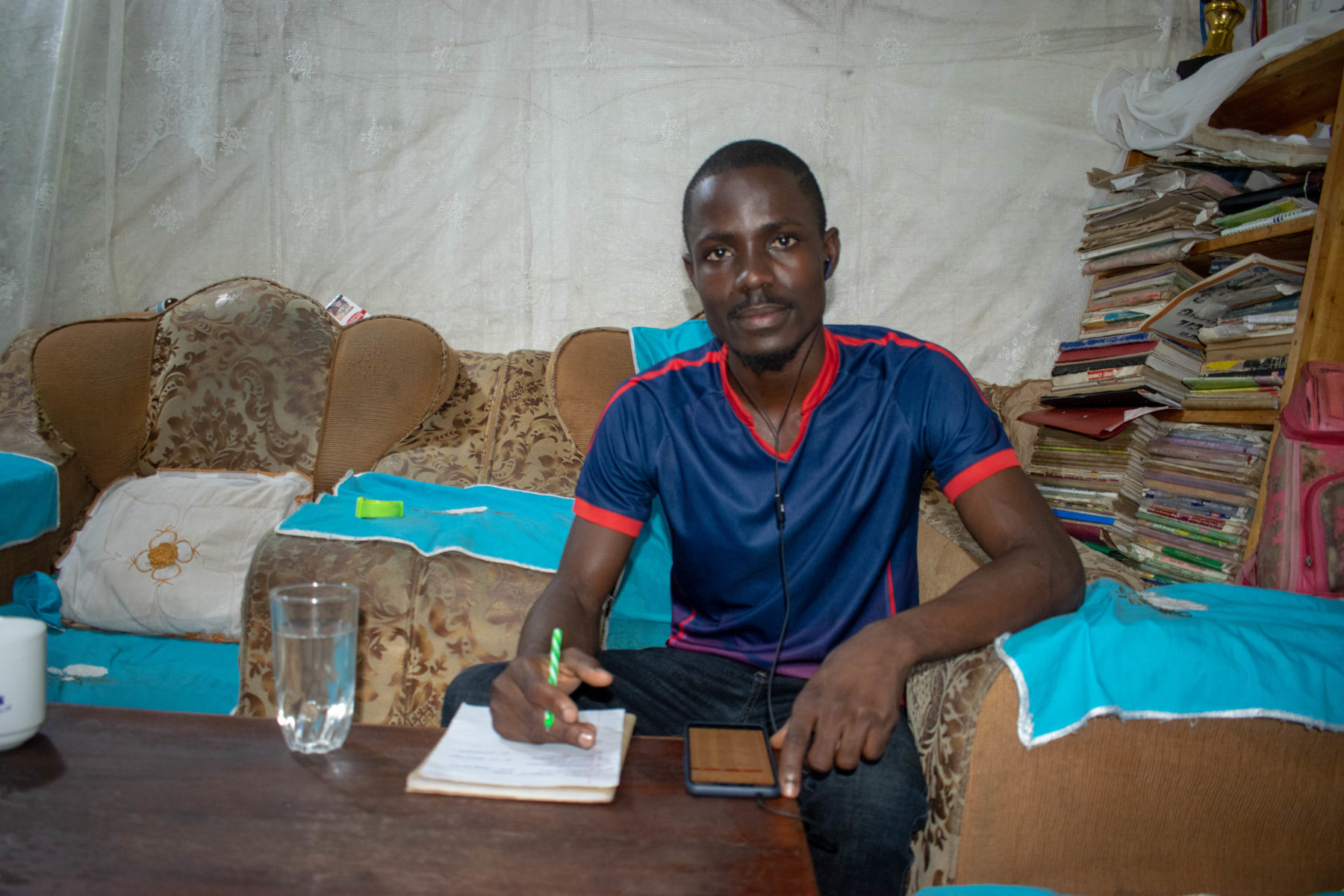
When Francis Otieno Juma graduated with a degree in agriculture and enterprise development in December 2018, he hoped to get a job as soon as possible. Life in the slums is very harsh and he knew without a job, he would slide back to poverty and hopelessness, with his degree in hand.
“Immediately after campus, I started applying for jobs. I made over 100 online applications but got no reply,” Juma, popularly known in his neighborhood as Tony, says.
Disparaged and beginning to lose hope, the 25-year-old settled on SHOFCO sustainable livelihoods program as his last resort.
“I used to go to the SHOFCO clinic but did not really get interested with the training offered to young people because I already had skills and thought I would easily get a job. When a friend told me we can try to go for the training since it is free, I bought the idea,” he says.
SHOFCO’s Sustainable Livelihoods Program incorporates skills training, job placement, entrepreneurship training, and mentorship in urban slum youth in Kenya. The program impacted more than 1,100 youth in 2020, despite the Covid-19 pandemic.
They visited SHOFCO and were enrolled in an employability training program. During the five-day training, Juma learned soft skills which he had not learned in college.
“We were trained on CV writing, presentation during interviews, customer service, and even relationship building. I was also trained on financial management, and the importance of saving for business, emergencies, and other purposes,” Juma adds.
After the training, SHOFCO placed Juma on an internship with a partner where after a two-month internship, he was employed at the firm located outside Nairobi.
“I worked in a rehabilitation center where I provided agricultural training, both theory and practicals, to youth. I was later employed because the manager noticed my hard work and resourcefulness,” Juma asserts.
After one year working at the rehabilitation center, Juma saw an employment opportunity at a cleaning company. He applied and was offered the job.
He worked there for almost a year, but when Covid-19 struck, he lost his job. He moved back to Kibera, to the realities of joblessness and lockdown that the pandemic had occasioned.
Since he was always in touch with the SHOFCO Sustainable Livelihoods Program team, he visited the office where he was advised and enrolled back into the job placement program.
“The SHOFCO team monitored me from the day I enrolled in the program. We used to talk, sometimes I called them and at times they called me. We are friends and they have been advising me. When I lost my job, they helped me in updating my cover letter and curriculum vitae,” ” Juma recalls.
In November 2020, SHOFCO linked Juma to an outsourcing company where he was trained on soft skills, customer service, and product marketing. In the process of undergoing the training, he learned of a job opportunity at D.Light, a global leader and pioneer in delivering affordable solar-powered solutions in the developing world. He applied and was recruited as a customer care representative.
“I have been doing this for the last six months. I have worked from home for most of the time and I like this job. I reach out to customers to address their needs,” adds Juma who says working from home is a challenge if someone is not good in time management and planning.
“With the skills, I have gained, all I need is a phone, earphones, a quiet place and I am good to go with my job. I attend meetings online and we share files through WhatsApp,” says Juma.
“Education is important. If you get an opportunity in a profession outside your area of training, take it. At the end of the day what matters is one’s ability to provide for themselves, serve their community and make the world a better place,” he concludes.
